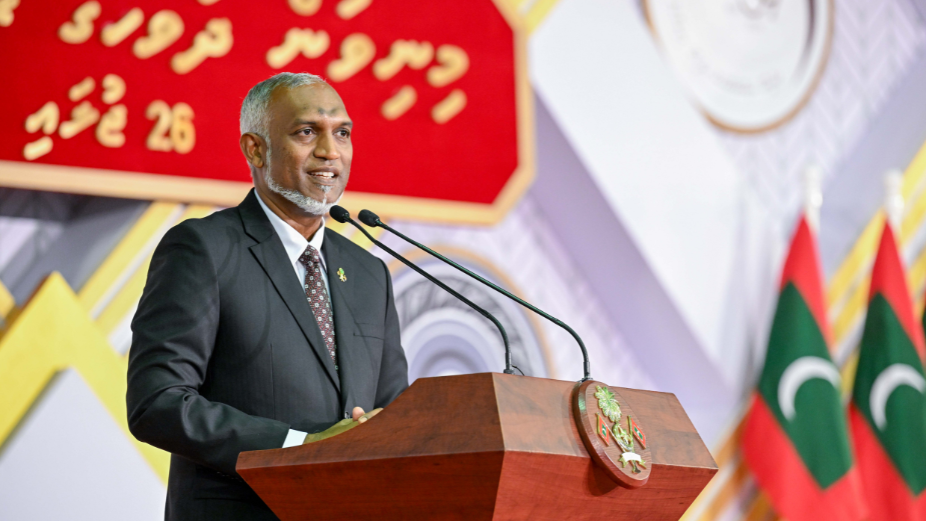
President Dr Mohamed Muizzu highlighted the importance of economic sovereignty and diversification at the 59th Independence Day reception, urging Maldivians to “look beyond the horizon” to ensure a brighter future. The President stressed the necessity of diversifying the economy to achieve true autonomy, moving beyond the traditional reliance on tourism.
As part of these efforts, President Muizzu highlighted the significant strides made by the Maldives International Financial Services Authority (MIFSA). Established to develop a robust legal framework for both onshore and offshore financial services, MIFSA aims to transform the Maldives into a global business hub. The President confirmed that work on drafting the necessary bills for MIFSA is well underway.
In addition to financial services, President Muizzu announced the establishment of a development bank in the Maldives, marking a first for the nation. He assured that the board members of this bank would bring substantial international experience, thereby instilling confidence in potential investors. The President also mentioned the upcoming launch of international bunkering services, expected to contribute USD 400 million to the country’s GDP in its first year.
Addressing the nation’s significant expenditure on fuel, President Muizzu revealed plans under the Special Economic Zone (SEZ) initiative, including a proposal to build a ‘Solar City’ on a lagoon near Bandos. Furthermore, he assured that the relocation of fuel storage from Funadhoo to Maagiri would be completed within two years, with the International Financial Services Centre to be established at Funadhoo.
In his speech, President Muizzu highlighted the broader benefits of these initiatives, including reduced debt, increased business profit tax revenues, and the creation of numerous job opportunities, particularly in the northern regions. These steps are part of a comprehensive strategy to enhance the Maldives’ economic resilience and sustainability, ensuring long-term prosperity for future generations.
Challenges to Economic Sovereignty
However, achieving economic sovereignty in such a globalised world presents significant challenges. The Maldives’ foreign policy has faced criticisms for being overly reliant on external powers, which can undermine its efforts towards true economic independence. Historically, the Maldives has depended heavily on tourism and foreign aid, making it vulnerable to global economic fluctuations and diplomatic pressures.
The global nature of finance and trade means that no country is entirely independent. Economic sovereignty must be understood within the context of interdependence with other nations. For the Maldives, diversifying its economy is essential, but it must be complemented by robust foreign policy strategies that balance national interests with international cooperation.
Moreover, the success of initiatives like MIFSA and the SEZs hinges on maintaining a stable political environment and fostering strong international partnerships. Attracting international investors and businesses requires not only competitive legal frameworks and incentives but also assurances of political stability and good governance.
Foreign Policy Failures
The current administration has endured several foreign policy missteps, which have significantly strained the Maldives’ relations with key international partners. Issues such as shifting alliances have affected its international standing, aided by the “India Out” movement led by individuals within the current administration, and the blatant harassment of Indian Prime Minister Narendra Modi by senior government officials with close ties to the president have further impacted these relations. To achieve the ambitious goals set by President Muizzu, it will be crucial for the Maldives to rebuild and maintain strong diplomatic ties, ensure transparency, and uphold the rule of law.
While the President’s vision for economic sovereignty and diversification is ambitious and necessary, it must be tempered with realistic assessments of global economic dynamics and the need for coherent foreign policy strategies. Achieving these goals will require a balanced approach that integrates domestic reforms with proactive international engagement.












